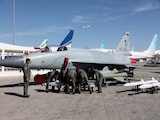A name is an incredibly important part of a person or place's identity. Sometime they even carry personal, cultural, familial, and historical connections. There are places that are named after a river, or mountain, or even a temple. But in Austria, a village had to suffer embarrassment for decades because of its name. And the rapid spread of internet and social media made it worse for F***ing, which renamed itself to Fugging. This decision was made in 2021, after years of enduring mockery.
According to an old report in The Guardian, Fugging is located 260 km west of Austria's capital Vienna. With the rise of travel influencers, particularly from English-speaking countries, this popular stop-off point for tourists started appearing in negative light. These travel bloggers snapped pictures of themselves near the signposts at the entrance and exit to the village with the word F***ing and post them on social media. Dozens of signposts were stolen, forcing the local authorities to put them up at a height of 2 metres and embed them in theft-resistant concrete when putting up replacements.
The villagers were called "F***ingers", which added insult to the already injured pride of the locals. They became the butt of jokes on social media, leading to the decision to change the name of the place.
Fugging is a part of the municipality of Tarsdorf, north of Salzburg and near the German border.
The village, officially inhabited in about 1070, was probably named after a local nobleman called Adalpert von Vucckingen, though local lore suggests that a sixth-century Bavarian aristocrat called Focko actually founded the settlement, said The Guardian report.















